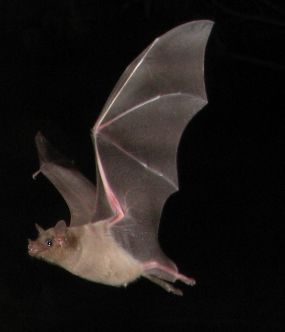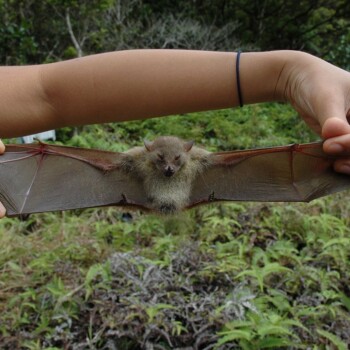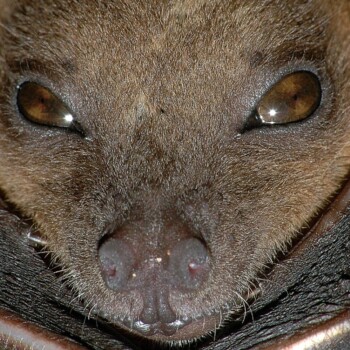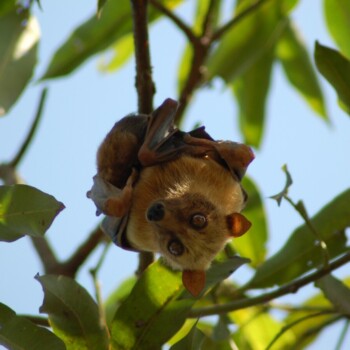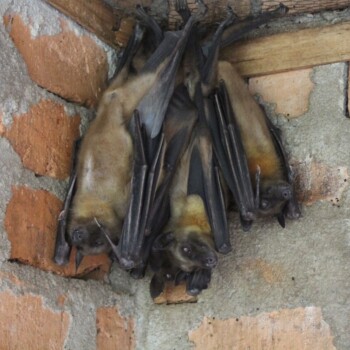Introduction
The effects of frugivorous bats and birds on the population dynamics of the giant columnar cactus Neobuxbaumia tetetzo in the Tehuacán Valley, Mexico were studied. Because successful seedling establishment occurs only beneath the canopies of shrubs and trees, we hypothesized that seed dispersal is a key process in the maintenance
of its populations
The Details
The dispersal effectiveness of different frugivores (fruit eaters) was examined by considering the quantity and quality components of seed dispersal. The potential effects of each frugivore species on the finite case of increase of N. tetetzo populations was ascertained with an algorithm. The bat Leptonycteris curasoae (southern long-nosed bat) had the highest effectiveness of seed dispersal, whereas the bird Carpodacus mexicanus had the lowest. The southern long-nosed bat is apparently the most important animal for dispersal of the seeds of N. tetetzo. The bat disperses seeds to safe sites beneath the canopies of shrubs and trees.
Additional reading: Seed Dispersal by Bats and Birds
